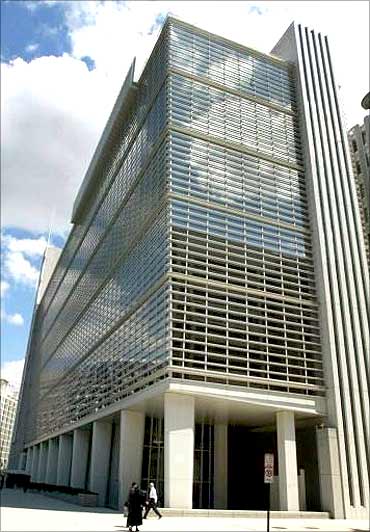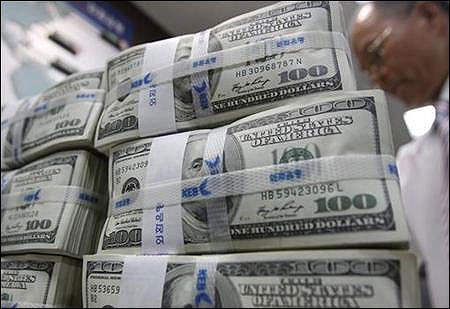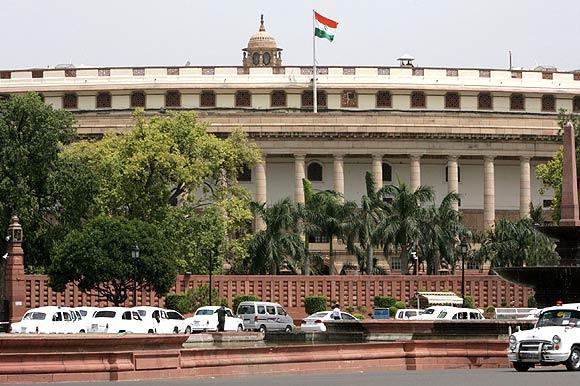 | « Back to article | Print this article |
India can grow at 9%; The World Bank is confident
India can return to 9 per cent growth if the government removes uncertainties in policy-making and go for early implementation of some of the long pending tax reforms, a senior World Bank official said on Wednesday.
"The worst thing for investment is not knowing what is coming next. And if that can be tackled by the government, it is going to restart the process of 8-9 per cent growth," World Bank's Chief Economist for South Asia Region Kalpana Kochhar told reporters on the sidelines of a Confederation of Indian Industry event.
For Rediff Realtime News on India Growth Story, Click Here!
Click NEXT to read further. . .
India can grow at 9%; The World Bank is confident
Kochhar suggested early implementation of long pending reforms like the goods and services tax and the Direct Tax Code, and reduction in subsidies to control the expenditure.
Vijay Kelkar, chairman of National Stock Exchange and former Finance Secretary blamed 'bad policies' for low growth and its impact on employment generation.
Uncertainties in policies result in investors staying off a country, he said and pointed out to the retrospective nature of tax laws.
Besides, non-conformity of contracts added to the constraints faced by investors, he added.
Click NEXT to read further. . .
India can grow at 9%; The World Bank is confident
"That's not the way to encourage investment, not the way to encourage growth because you are increasing cost of risk capital. Nothing hurts investor (more) than not knowing what his tax burden is going to be," he said.
Because of global problems like slowdown in the euro-zone and domestic issues like widening fiscal deficit, depreciating currency, inflation and the consequent rate hikes by the Reserve Bank of India, the government has been forced to revise downwards its FY'12 growth forecast.
Click NEXT to read further. . .
India can grow at 9%; The World Bank is confident
As against the budgeted 9 per cent, it now estimates FY12 gross domestic product growth will be around 7.5 per cent while a slew of analysts have pegged it at 7 per cent.
The industry has been vociferously attacking the government for its policy paralysis which is resulting in the slower growth, pointing out specifically to rollback on allowing multi-brand foreign direct investment, targeting corporate honchos in 2G spectrum scam and delays in environmental clearances for projects.
Click NEXT to read further. . .
India can grow at 9%; The World Bank is confident
Kelkar drew parallels between the country and other emerging economies and said India discourages employment-intensive manufacturing sector like no other country by heavily taxing the units.
A step like GST is urgently required, he observed.
The World bank on Wednesday launched a report titled 'More and better jobs in south Asia' which points out the need for reforms across sectors to create and sustain multi-sectoral jobs.
In the future, the region will have to create enough jobs to absorb up to 1.2 million new entrants into the labour force, it said.




